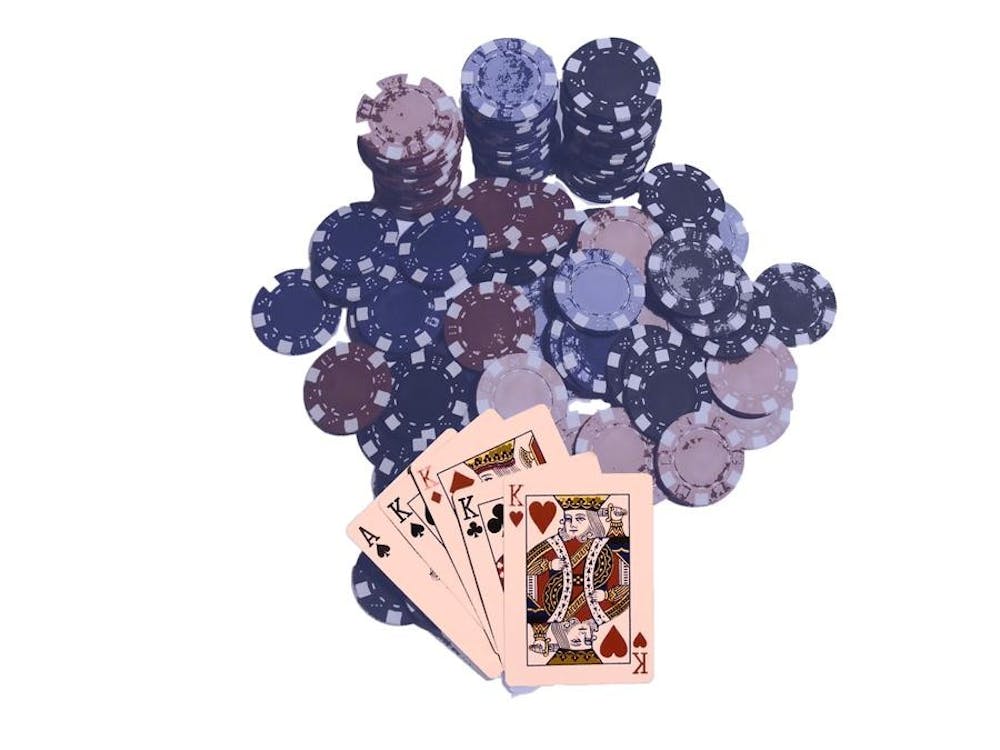If you’ve ever bought a lottery ticket or visited a casino, you’ve tried to predict the future. When you gamble, you’re placing a bet on an uncertain outcome that hasn’t happened yet.
Russell Lyons and Richard Bradley, both mathematics professors, debunk (and validate) several gambling myths to explain how probability plays into the lottery and our personal betting behavior.
Myth 1: I am more likely to win the lottery if I play every day.
TRUE
Richard Bradley: “Technically it’s true, but the more you play, the more you can expect to lose, and the more money you can expect to be throwing away. The main thing to underline in all this is the amount of money paid out by the lottery over the long run is quite a bit less than the amount of money put in.”
Myth 2: Buying two tickets in a single lottery drawing will double my chance of winning.
TRUE
RB: “Again, it may be very close to being correct depending on how the lottery is set up, but again you’re throwing away twice as much money if you don’t win. In the long run, you can expect to lose more.”
Russell Lyons: “This is true assuming the chance of winning is very small.”
Myth 3: If I choose the same numbers each time I play, my chances of winning are greater. For example, “If I bet on 23 in roulette each time, it is bound to come up eventually.”
FALSE
RB: “This is completely false. Although, in a casino, there have been cases where the wheels were not balanced quite perfectly. Some really bright students from the California Institute of Technology were able to observe over many weeks discrepancies in how often numbers came up, and they were able to win a small amount in the long run from that.”
RL: “To say a number is bound to come up eventually is slightly misleading. You can say the same thing no matter what number you bet on. You can bet on a different number each time, and the chance of winning is the same as you betting on the same number each time. This is unless the wheel is unbalanced, and that can happen. When the wheel is spun, there is no effect from the previous outcomes on what’s going to happen this time.”
Myth 4: I should choose numbers that other people are less likely to select.
TRUE
RL: “This will not change the chance of you winning, but it will increase the amount you win. You would have fewer people or no people to share the winnings with. So how do you choose a number that other people are not going to choose? Your picks are not completely random. People would have similar thought processes. Instead, it’s really better to choose completely at random.”
Myth 5: If the odds of winning at a scratch-off game are 1:4, I can buy four tickets and at least break even.
FALSE
RB: “That looks like nonsense to me. Maybe you get a $3 payout. If you’re paying $1 to play the game in the first place, paying $4 for those four tickets, if you win once, you’re still going to lose a dollar.”
Myth 6: If a slot machine hasn’t paid out in a while, it is “due” soon. In other words, some machines are hotter than others.
FALSE, most of the time
RL: “This could be true if there are machines designed in such a way that if it hasn’t paid out in a while, it will soon, but I just don’t know if those exist. If it is purely probabilistic each time, independent from the past, then by definition that’s going to mean that the chance of winning now has no relation to how long it’s been since it paid out the last time or by how much.
“People do have the misconception that it does balance out, but the way it balances out is not in this particular way. It’s a mathematical property rather than inherent in the way the physical world is working. The fact that it’s random leads to it balancing out.”
Myth 7: For scratch-offs, I should buy from shops that have had winners in the past.
FALSE
RB: “That’s complete nonsense.”
Think Lady Luck's on your side? Think again
7 gambling myths explained

Get stories like this in your inbox
Subscribe





